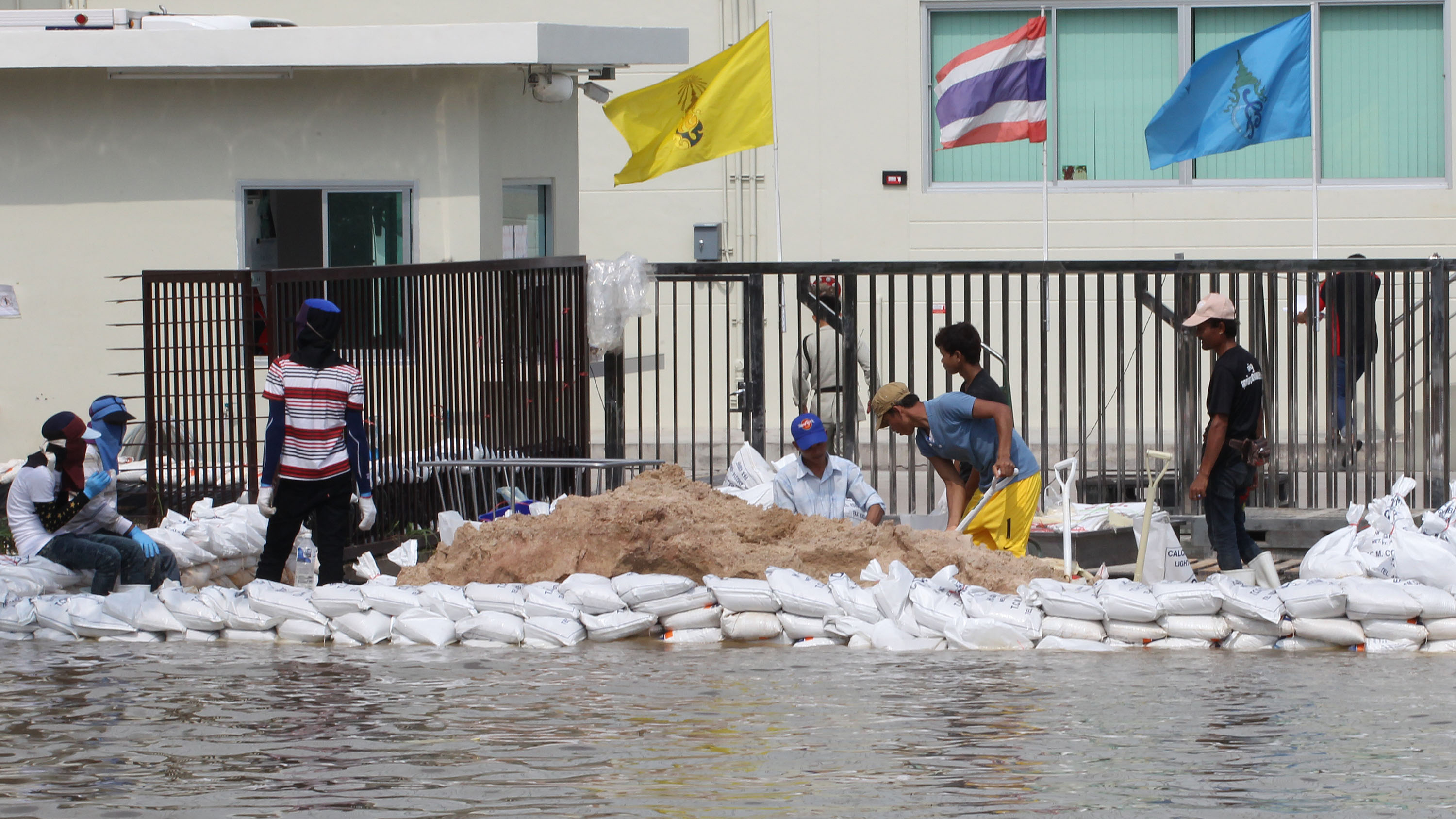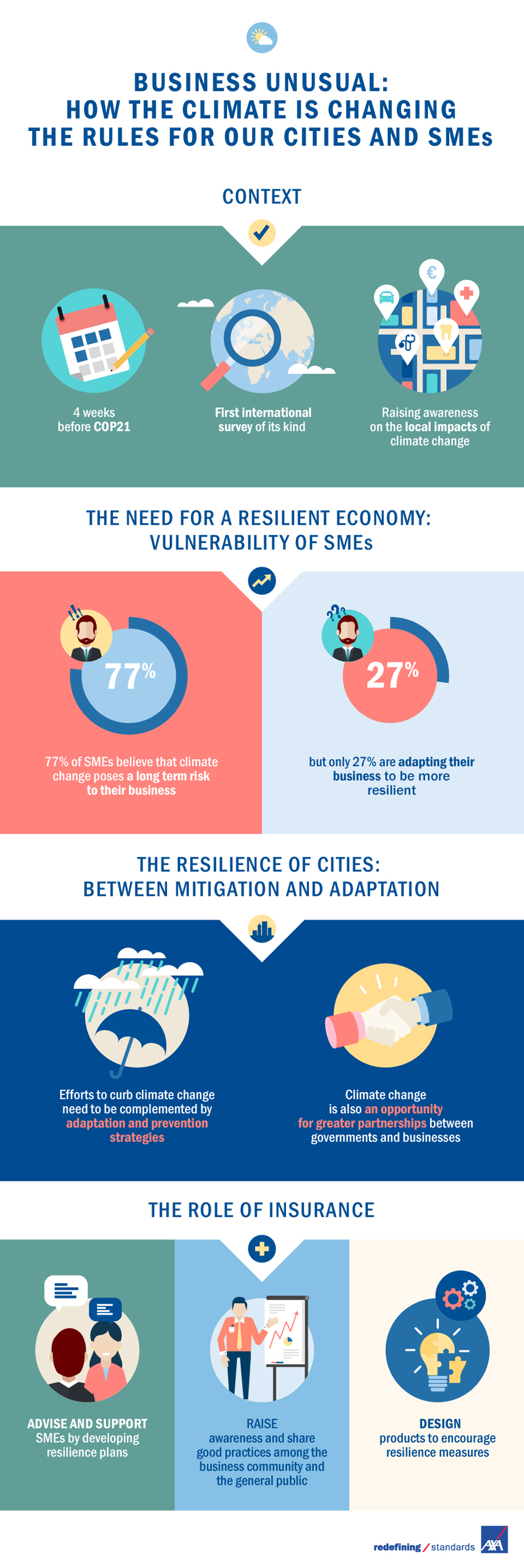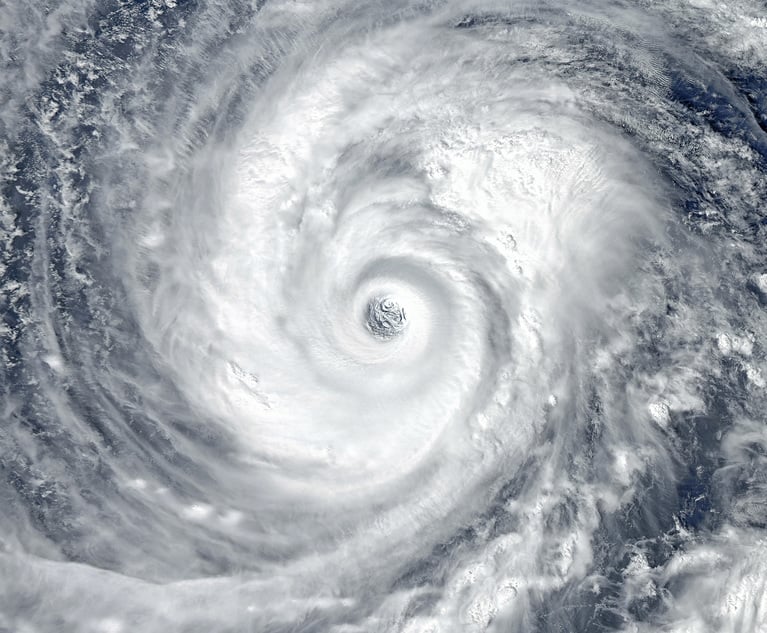Climate change is a phrase that is hotly debated, with strongviews on all sides. No matter what your opinion on the issue, it’sclear that global weather events — regardless of cause — have amajor impact on supply chains and on business resiliency.
|Consider the damage caused by Hurricane Patricia to Mexicanbanana crops, and the ripple effect of that damage to the places towhich those bananas would be exported.
|In considering the issue of climate change from a globalperspective, the United Nations is sponsoring the Paris Climate Conference, whichwill gather government representatives from around the world todiscuss ways that countries can be more resilient.
|To coincide with the conference, Paris-based AXA Group releasedits “BusinessUnusual” report, a study on how cities and small to medium-sizeenterprises (SMEs) are working to become more resilient to theconsequences of climate change. The report was commissioned by AXAand conducted by the Penn Schoen Berland Institute. Surveyparticipants included 1,104 SME directors and urban leaders frommajor cities in 18 countries across Europe, the Americas andAsia.
|The report confirms that as cities have grown, especially indeveloping countries, and people migrate to urban areas, thoseareas have become more vulnerable to natural disasters. Cities havecontinued to develop and build on adaption strategies, however, tomake their cities more resilient. The report found that SMEs, onthe other hand, are far less prepared to deal with the effects ofclimate change and natural disasters. SMEs feel vulnerable,especially those in emerging markets where communities have beenmost affected.
|Related: Insured losses in Mexico from Hurricane Patricia estimated at lessthan $200 million

(Photo: Thinkstock)
|Highlights of the study
|Penn Schoen Berland conducted 1,104 online interviews fromJuly 30 to Sept. 9 this year with senior decision makers at SMEs in11 key markets that were grouped as either “developed” or“emerging.” The developed markets were Belgium, France, Italy, theUK and the U.S. Emerging markets were Brazil, China, India,Indonesia, Mexico and Thailand. The SME decision-makers are definedas those with decision-making authority for their entireorganization or for multiple departments or divisions within it, incompanies with 10 to 250 employees.
|Here are some key SME statistics that emerged from thestudy:
- 59% have been affected by climate change, 66% in emergingmarkets.
- 27% are well prepared for the consequences of climatechange.
- 27% are focusing on adapting their businesses to be moreresilient.
- 53% believe climate change represents an opportunity for theirbusiness.
- 26% currently have a resilience plan in place. In the UK andU.S., more than 40% have no plans to develop one at any point inthe future.
- 74% believe that large corporations are ahead of their businessin adapting to climate change.
- 19% currently interact with government on the issue of climatechange.
- 79% think insurance companies should be doing more to helpbusinesses adapt to the consequences of climate change.
According to the report, the most significant impact climatechange has had on SMEs has been on costs and the price of inputs(cited by 37% of those surveyed). This is even more prevalent inemerging markets and is of highest concern to those operating inmanufacturing sectors. SMEs in developed markets give equal weightto the impact on costs and input prices as to the cost of insuranceand protection against risk.
|
Workers unload sandbags to build a barrier from floodwatersat a factory at Amata Nakorn industrial estate in Chonburiprovince, eastern Thailand Oct. 9, 2013. (Photo: ApichartWeerawong/AP)
|SMEs focused on mitigation, not adaption
|Across markets, the report found that SMEs’ climatechange-related activities are predominantly focused on mitigationrather than on adaptation measure to protect their businesses. Only25% of SMEs in developed markets and 28% in emerging markets havepaid for insurance to cover climate-related risks and fewer than25% currently undertake regular risk assessments or planning fornatural disasters.
|Surprisingly, the most prepared market is China, where 41% ofSMEs say they have a plan in place, followed by Thailand, where 38%have developed a plan, the report found. The least prepared marketsare the UK and the U.S., where more than 40% of SMEs currently haveno intention of developing a plan at any point in the future.
|Currently, climate change is not in the perceived “top tier”threats to the SMEs’ businesses, which include financialinstability, data privacy and work-related diseases. In addition,the SMEs surveyed reported that they lack the capacity, knowledgeand necessary support to plan and adapt to the consequences ofclimate change.
|
(Photo: Shutterstock)
|Insurance industry’s role
|Overall, 59% of SMEs say that insurance companies are alreadyhelping their businesses adapt to the consequences of climatechange, but 74% in developed markets and 84% in emerging marketssay that insurance companies should be doing more to supportbusinesses and communities. SMEs currently believe that insurancecompanies should prioritize investment in new green technology andprovide incentives for companies to reduce carbon emissions andincrease energy efficiency — even though these are lower prioritiesfrom the SME perspective.
|Only 12% of those in developed markets and 16% of those inemerging markets are currently taking climate change into accountwhen choosing their level of insurance coverage. The majority ofSMEs do expect climate change to affect their choice of insuranceat some future date. Only SMEs in the UK and the U.S. are morelikely to say that their choice won’t be affected. As might beexpected, SMEs that had firsthand experience of the impact ofclimate change had a different view of their insurance needs.
|The insurance industry, recognized as a leader in riskassessment, the report says, has “a major opportunity” to stepforward to advise SMEs on how to assess climate risks and supportthem in the development of resilience plans. Sixty-two percent ofSMEs believe that insurance companies are a credible source ofinformation on climate change, and 74% believe that insurancecompanies can help reduce climate-related risks.
|No matter what insurance agents, brokers and carrierrepresentatives personally believe about climate change, thisreport presents a perfect opportunity to begin a conversation withclients about business continuity planning and supply chainresilience.
|For a copy of the “Business Unusual” report, click here.
|
Want to continue reading?
Become a Free PropertyCasualty360 Digital Reader
Your access to unlimited PropertyCasualty360 content isn’t changing.
Once you are an ALM digital member, you’ll receive:
- All PropertyCasualty360.com news coverage, best practices, and in-depth analysis.
- Educational webcasts, resources from industry leaders, and informative newsletters.
- Other award-winning websites including BenefitsPRO.com and ThinkAdvisor.com.
Already have an account? Sign In
© 2024 ALM Global, LLC, All Rights Reserved. Request academic re-use from www.copyright.com. All other uses, submit a request to [email protected]. For more information visit Asset & Logo Licensing.








